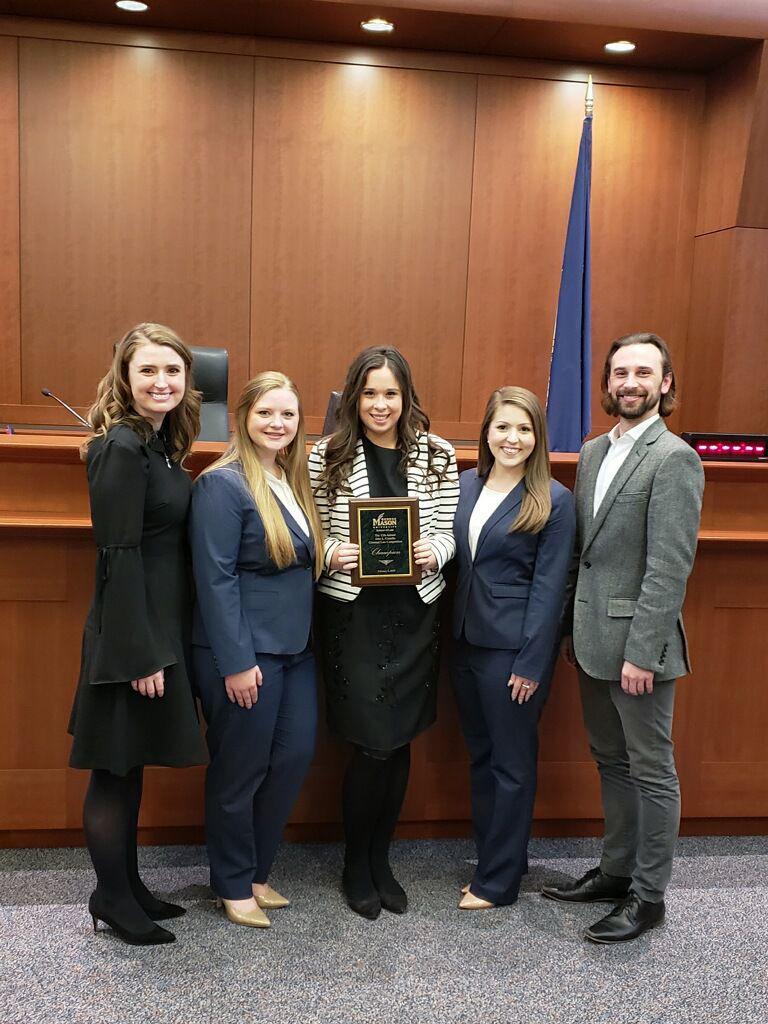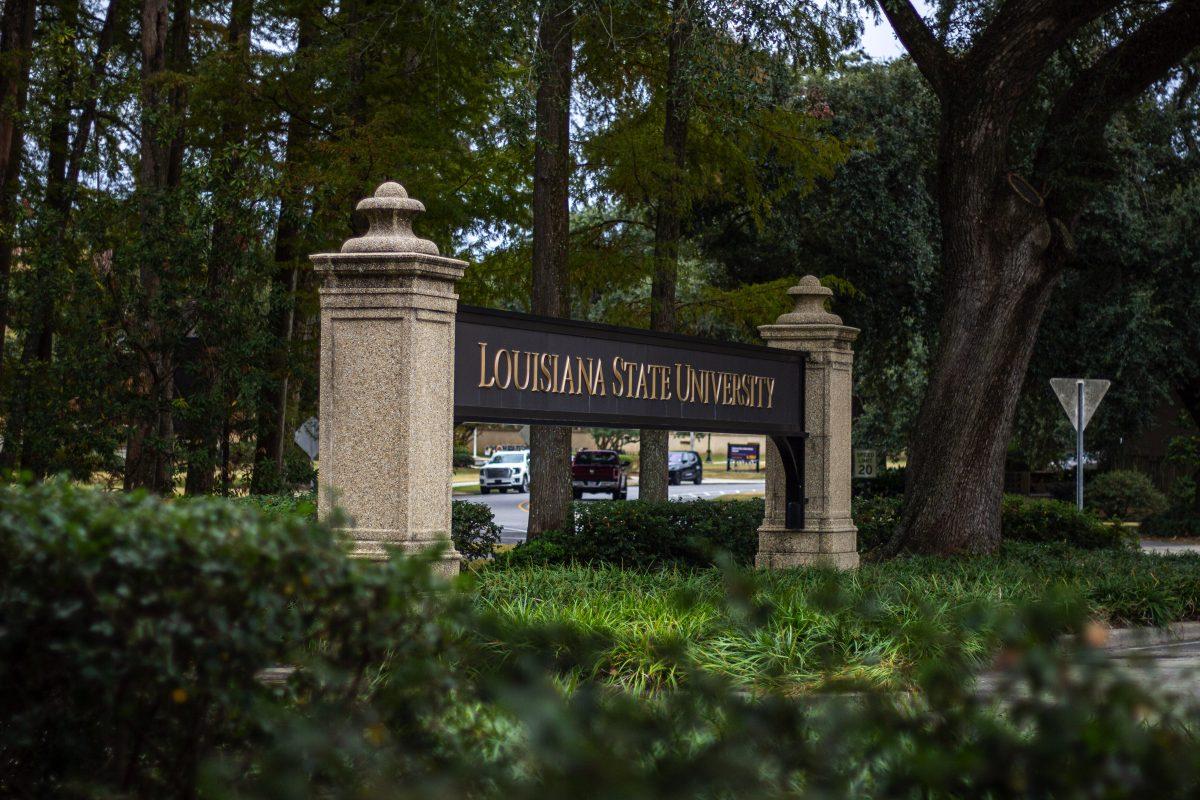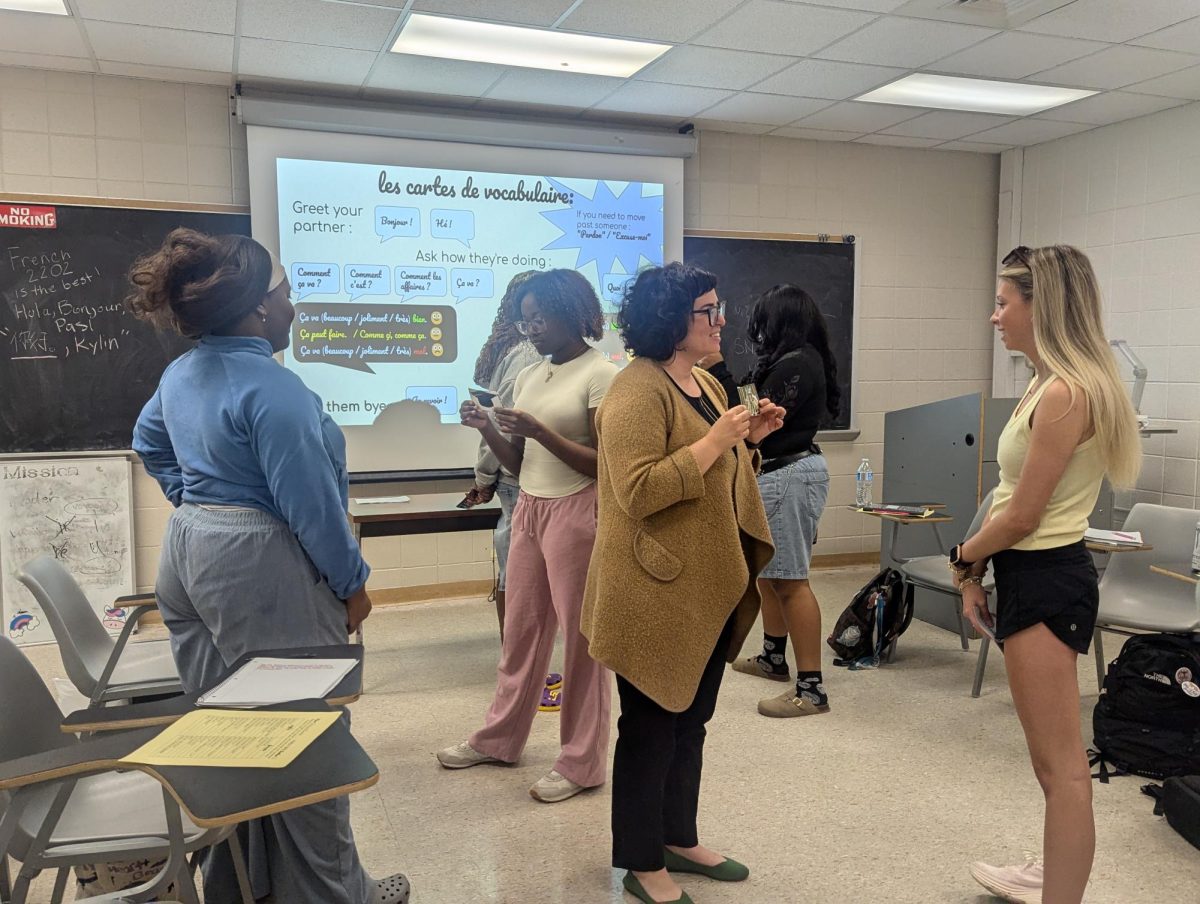A team of LSU Paul M. Hebert Law Center students won first place at the John L. Costello National Criminal Trial Competition.
The competition took place from Jan. 31 to Feb. 3 and was hosted by George Mason University’s Antonin Scalia Law School. The team competed against 32 teams from law schools around the country and is the first team from LSU to win the competition.
Team members include second-year (2L) student Elise Benezech and 3L students Brooke Delaune and Allena McCain. The team was coached by Lindsay Blouin and Joshua Newville, who both graduated from the LSU Law Center in 2012. Participating in trial advocacy is a way for the team to ensure that they are prepared to appear in court as future attorneys.
“There’s only so much that a classroom setting can teach me about how to be a trial attorney,” Delaune said. “I really wanted to do this to make sure that when I graduate and step into a courtroom, I know what I’m doing.”
Each trial advocacy team consists of three members, with two members acting as attorneys and one member acting as a witness. At the competition, the teams conduct criminal trials and act as either the prosecution or defense.
This competition was designed to provide competitors with a realistic experience as participants in a criminal trial. Instead of preparing cases as both prosecution and defense, each team was designated as a prosecution team or a defense team when the case materials were distributed and only received information regarding their side of the case.
Not only did the teams not know what information their opponents were given, but they were also given new pieces of evidence right before the start of each trial. While this practice makes the competition more challenging, the team agreed that it was good experience for their future careers.
“Both sides would get a new piece of evidence and we wouldn’t find out what they had until five minutes before the trial started,” Delaune said. “In real trials, you’re going to get evidence last minute and you have to adjust.”
For each trial, the teams were also assigned a student from the host university who volunteered to act as a second witness, referred to as a woodshed witness. The teams had 15 minutes to explain to the students the roles they should assume as witnesses and how they should respond during direct and cross examinations.
McCain had the responsibility of “woodshedding the witness” for her team, which was categorized as a defense team. For defense teams, the woodshed witness was an expert witness who had to explain technical information about post-traumatic stress disorder (PTSD). McCain said training a stranger to assume such a role in 15 minutes is no easy feat and involved a lot of preparation.
“It was really hard because as part of getting an expert witness on the stand, we had to teach them the proper methodology for diagnosing PTSD,” McCain said. “They don’t know that and it wasn’t in the case materials, so we had to go research.”
Benezech was the team’s witness and acted as the defendant in the case. She not only had to prepare for direct and cross examinations as her witness, but also had to remember information from each new piece of evidence the team was given. Delaune, who questioned Benezech during direct examination, said Benezech’s quick understanding of the new pieces of evidence was crucial.
“Every time we would get our new piece of evidence, it was completely on Elise to make sure she gave the right answer,” Delaune said. “We got to a point where Elise and I were telepathically communicating. She was so instrumental.”
Delaune was also an integral part of the team. McCain said during the competition, two judges told Delaune she had given the best closing argument they had ever seen.
To prepare for the competition, the team practiced at least twice a week. Their coaches instilled in them the importance of knowing the rules of evidence and standing by their case theory. Blouin and Newville, who both work at the East Baton Rouge Office of the Public Defender, asked attorneys who work there to assist in training the team for competition.
The team presented their case numerous times alongside attorneys from the Office of Public Defenders, who acted as the prosecution. The attorneys created their own prosecution and new pieces of evidence for each trial so the team would not be phased by the opposing team during the actual competition. While their practices were difficult, the team agreed they improved performance.
“Our coaches really did prep us to have the worst practices, so we would have better performances,” Benezech said.
In the end, the team’s hard work and grueling practices put them ahead of their competition. Delaune said earning the championship was particularly empowering because their team consisted of only women. The team agreed that being named champions was an indescribable experience and reassured them of their skills as future attorneys.
“It was so validating that the skills that I have are good enough to be a champion,” McCain said. “We went against some of the best trial advocacy programs in the nation and to say that our skills carried us to the very end is very validating.”
LSU law students win national criminal trial competition
February 11, 2019
LSU Law Center alumni Lindsay Blouin and Joshua Newville coached current law students Allena McCain, Elise Benezech and Brooke Delaune for their criminal trial competition.
More to Discover










